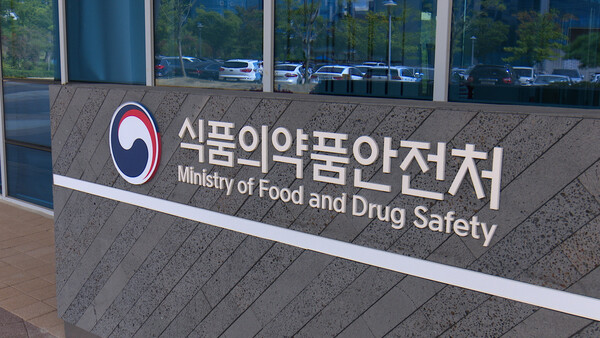The Ministry of Food and Drug Safety (MFDS) said it has requested 812.2 billion won ($582.3 million) for its 2026 budget, an increase of 633 billion won, or 8.4 percent, from this year’s 748.9 billion won.

The agency explained that the proposed budget reflects the new government’s policy priorities while also tightening fiscal management through expenditure restructuring.
The MFDS outlined four key areas for next year’s budget -- strengthening the foundation for pharmaceutical and biohealth safety and innovation, expanding customized regulatory support, improving food safety and nutrition, and building a proactive system for future challenges.
In the pharmaceutical and biohealth sector, the regulator will allocate 170.4 billion won, including 15 billion won newly earmarked to accelerate the commercialization of promising artificial intelligence-based products in food and medical devices.
Support for the Korea Orphan Drug Center will rise to 6.7 billion won, while funding for cosmetics safety management will more than double to 5 billion won to help Korean companies overcome non-tariff barriers such as Europe’s safety assessment systems, China’s testing requirements, and halal certification in Islamic countries.
The agency will also strengthen narcotics control, raising prevention education for university students, expanding professional training, and setting up an information strategy plan to build a drug addiction management system.
For regulatory science, the budget will surge to 11.4 billion won, more than 20 times this year’s 500 million won.
The MFDS plans to establish an integrated consultation platform, expand expert staff for advanced biologics, and introduce new guidelines for AI-based and next-generation medicines.
A separate 5.5 billion won will go into a new program to train regulatory science specialists through collaboration among universities, industry, and research institutes.
In food safety, the ministry will spend 187.1 billion won, with 7.8 billion won allocated to a predictive system for potential hazards such as fungal toxins, shellfish poisons, and foodborne pathogens.
Online monitoring of food and drug safety will also receive expanded funding. The MFDS will further promote Smart HACCP adoption among small manufacturers by subsidizing sensor installation costs.
To prepare for future risks, 146.9 billion won will be directed toward modernizing drug approval and review systems.
A stepwise automation plan will begin with generics in 2026, expanding to active ingredients and new drugs by 2028. The agency will also consolidate 15 food-related information systems into a single integrated platform.
The ministry added that once the National Assembly finalizes the 2026 budget, it will fully implement the government’s flagship projects to safeguard public health and enhance the competitiveness of Korea’s biohealth industry.
Related articles
- Korea's GIFT system speeds approvals for rare and severe disease treatments
- Korea expands drug monitoring system to curb misuse of ADHD medications, zolpidem
- Korea's drug safety agency to introduce AI in drug review process starting next year
- 'Now is the golden time': MFDS to directly investigate medical narcotics crimes
- FDA signals shift on biosimilar trials; Samsung Bioepis urges market alignment

